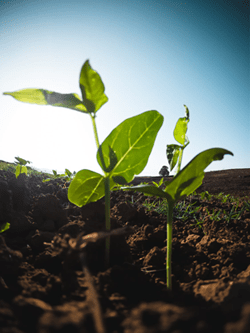
According to a UN report, more than 700 million people, or 10% of the world population, are living in extreme poverty, surviving on less than $1.90 USD per day.
This means that millions of people cannot afford to provide basic needs such as nutrition, shelter, and care for their children. These needs become even more difficult to fulfill when a parent has a child with a physical and/or cognitive disability. Sadly, parents are having to place their children in orphanages or group homes due to a lack of resources to adequately care for their basic needs.
However, the reality remains that while the families do not have the resources needed to care for these children, the facilities they are placing them in, because they too are located in these impoverished countries, are also struggling due to little to no economic stability, education, and infrastructure.
Because of the direct link between poverty and orphaned children, equal attention must be paid to efforts that will guide these communities out of poverty and toward a more sustainable future.
For more than 15 years, the World Forgotten Children Foundation (WFCF) has been supporting the welfare of orphaned children in developing countries. Recently, WFCF expanded its mission in an effort to be able to not only support these children in need, but also the underprivileged communities that they are living in. The mission now encompasses both the health and welfare needs of orphaned children with disabilities AND the health and welfare needs of underprivileged communities.
WFCF’s Newly Expanded Mission:
The first major project that fits this newly expanded mission is a water management program which was inspired by the recent United Nations World Water Development Report, Leaving no one behind, launched on March 19, 2019 during the 40th session of the United Nations Human Rights Council (UNHRC). The report stresses how improvements in water resources management and access to water supply and sanitation services are essential to addressing various social and economic inequities, such that ‘no one is left behind’ when it comes to enjoying the multiple benefits and opportunities that water provides.
Recognizing that safe drinking water and sanitation are basic human rights and critical to sustaining healthy livelihoods, WFCF, in partnership with the African Community Project, has just commenced a unique water management program that will enable underprivileged communities in rural areas of Africa, such as the Zimba District of Southern Province, Zambia, to properly utilize water for developing a more sustainable community.
This project will provide ample water to a specific group of local women in a community where they are currently struggling to provide food and livelihoods for their families and children. WFCF and the African Community Project have been given a track of traditional land that will provide space for these women to unite and grow vegetables and fruit for the upkeep of their families, and the surplus will be sold in the Zimba market. Most labor around the farm will be paid with in-kind trading among the members. Vegetables and other commercial crops grown on the farm will be sold and the money generated will provide funds to maintain the upkeep of the project. As the project matures, chickens and other farm animals can be added to enhance the products produced.
The fund provided by WFCF will be utilized to conduct a professional water survey, drill the borehole and construct the well, supply and install a heavy-duty submersible pump, water tanks, and to supply and install a solar electrical system capable of delivering ample electricity to the submersible pump.
In addition to projects that directly benefit children with disabilities in developing countries, WFCF now also welcomes proposals and prospective partnerships for projects that can benefit underprivileged communities and stop the cycle of poverty. The programs will be environmentally friendly, with sustainable and self-maintained agricultural systems modeled from natural ecosystems.
Projects should focus on:
- Care for the Earth: Include provision for all life systems so they can continue and multiply, because without a healthy earth, humans cannot continue.
- Care of the People: To access those resources necessary for their existence.
- Return of Surplus: Reinvesting surpluses back into the needy community.
- Returning waste back into the system by recycling and composting.
Any questions regarding WFCF’s newly expanded mission can be directed to: help@world-forgotten-children.org.
Sources:
United Nations. (n.d.). Sustainable Development Goals. Retrieved November 7, 2019, from https://www.un.org/sustainabledevelopment/poverty/
United Nations. (18 March, 2019). World Water Development Report 2019. Retrieved November 7, 2019, from https://www.unwater.org/publications/world-water-development-report-2019/


